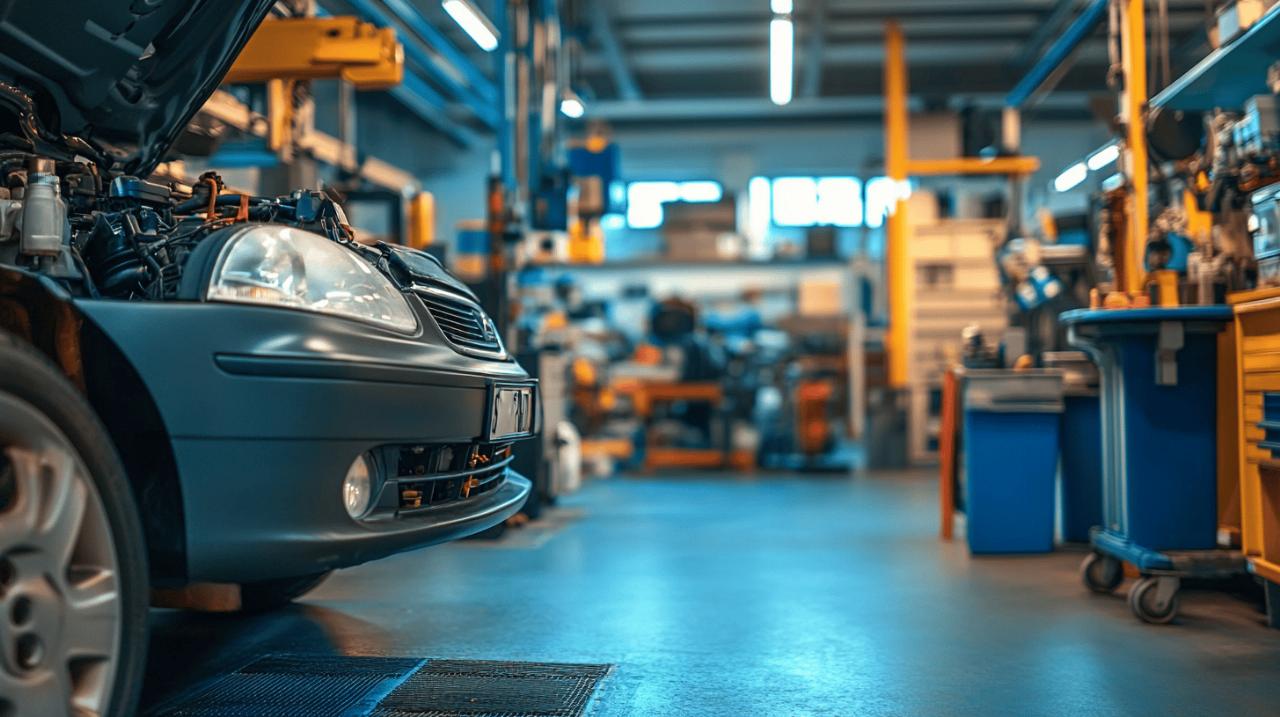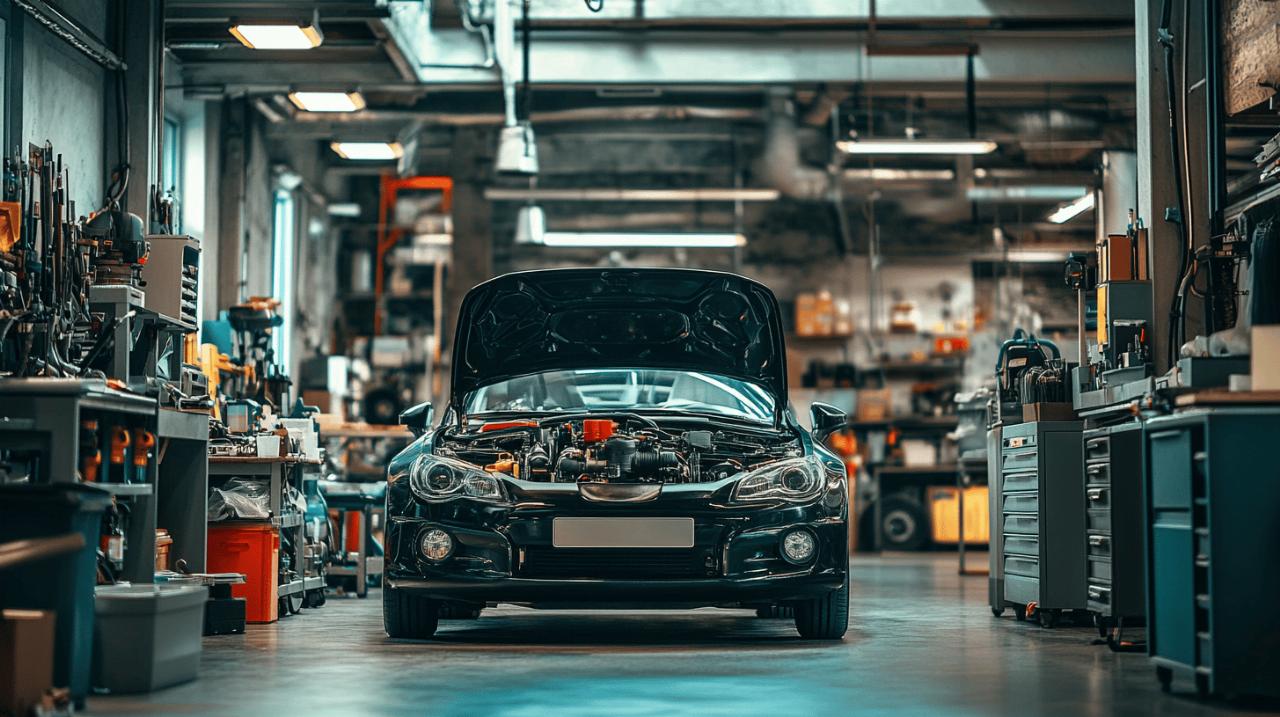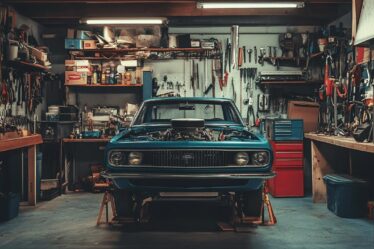
Taking care of your vehicle is essential to ensure it runs smoothly and has a long lifespan. Regular maintenance not only prevents unexpected breakdowns but also saves you money in the long run by avoiding costly repairs. This comprehensive guide will walk you through the essential maintenance tasks that can extend your vehicle's life and optimise its performance.
Understanding basic vehicle maintenance
The foundation of proper car care begins with understanding what your specific vehicle needs. Many car owners neglect this crucial first step, which can lead to unnecessary wear and tear. Auto Service Feser recommends that all vehicle owners familiarise themselves with their car's specific maintenance requirements to ensure optimal performance and longevity.
Reading your owner's manual
Your vehicle's owner's manual is the most valuable resource for maintaining your car properly. This often overlooked booklet contains manufacturer-specific information about service intervals, fluid specifications, and maintenance procedures tailored to your exact model. Rather than following generic advice, the manual provides precise guidelines that can prevent costly mistakes and ensure your warranty remains valid.
Creating a maintenance schedule
Developing a consistent maintenance schedule based on your owner's manual recommendations is crucial for vehicle longevity. Most experts suggest creating a calendar or digital reminder system that alerts you when it's time for specific services. The average car remains on UK roads for about 8 years, although many vehicles can last up to 14 years or more with proper care. By scheduling regular maintenance checks, you can identify potential issues before they become serious problems.
Fluid management for optimal performance
Proper fluid management is one of the most critical aspects of vehicle maintenance. Your car relies on various fluids to function correctly, and monitoring them regularly can prevent engine damage and ensure smooth operation.
Checking and changing engine oil
Engine oil serves as the lifeblood of your vehicle, lubricating moving parts and preventing excessive wear. Most manufacturers recommend changing your oil every 3,000 to 5,000 miles, depending on your driving conditions and the type of oil used. When checking your oil, look for both the level and quality of the fluid. Dark, gritty oil indicates it's time for a change, even if you haven't reached the recommended mileage interval.
Monitoring other critical fluids
Beyond engine oil, your vehicle requires several other fluids to operate correctly. Check your coolant, brake fluid, power steering fluid, and windscreen wash levels every fortnight. Low coolant can lead to overheating, while insufficient brake fluid can compromise your safety. For automatic transmissions, the transmission fluid should also be checked regularly. Remember that checking fluids should be done when the engine is cool to prevent burns and accurate readings.
Tyre care and maintenance
Your tyres are the only point of contact between your vehicle and the road, making their maintenance crucial for both safety and performance. Proper tyre care can improve fuel economy, handling, and overall driving safety.
Proper inflation and rotation practices
Maintaining correct tyre pressure is essential for even wear and optimal fuel efficiency. Check your tyre pressure weekly, using the specifications found in your owner's manual or on the driver's door jamb rather than the maximum PSI listed on the tyre itself. Additionally, rotating your tyres every 5,000 to 7,000 miles ensures they wear evenly, extending their lifespan and maintaining consistent handling characteristics.
Recognising signs of tyre wear
Regular visual inspections can help identify tyre issues before they become dangerous. Look for uneven wear patterns, which might indicate alignment problems, and check the tread depth regularly. While the legal minimum in the UK is 1.6mm, many experts recommend replacing tyres when the tread reaches 3mm for optimal safety, especially in wet conditions. Also inspect sidewalls for bulges or cracks, as these could signal potential tyre failure.
Brake system inspection and care
Your brake system is arguably the most critical safety feature of your vehicle. Regular inspection and maintenance ensure you can stop effectively when needed, preventing accidents and ensuring passenger safety.
Warning signs of brake problems
Being attentive to warning signs can help you address brake issues before they become dangerous. Listen for squealing, grinding, or screeching when applying the brakes, as these sounds often indicate worn brake pads. Other warning signs include vibration during braking, a soft brake pedal, or pulling to one side when stopping. If your vehicle exhibits any of these symptoms, having your brakes inspected promptly can prevent more severe damage to the rotors and other components.
Diy brake checks vs professional servicing
While some brake maintenance tasks can be performed at home, such as visual inspections of pad thickness and checking brake fluid levels, comprehensive brake service often requires professional attention. Brake systems are complex and directly impact safety, so unless you have specific expertise, it's wise to have a professional perform brake pad replacements, rotor resurfacing, or caliper rebuilds. Many mechanics, including Auto Service Feser, offer free brake inspections that can identify issues before they become serious problems.
Engine performance optimisation
 Maintaining optimal engine performance requires attention to several components that affect combustion efficiency and power delivery. Regular maintenance of these systems can improve fuel economy and extend engine life.
Maintaining optimal engine performance requires attention to several components that affect combustion efficiency and power delivery. Regular maintenance of these systems can improve fuel economy and extend engine life.
Air filter maintenance
Your engine needs clean air to perform efficiently, making the air filter an essential maintenance item. A clogged air filter restricts airflow, reducing power and increasing fuel consumption. Most manufacturers recommend inspecting the air filter every 15,000 to 30,000 miles, but dusty conditions may require more frequent checks. Replacing a dirty air filter is a simple task that can be performed at home with basic tools and can significantly improve engine performance.
Spark plug replacement guidelines
For petrol engines, spark plugs play a crucial role in combustion efficiency. Modern spark plugs typically last between 30,000 and 100,000 miles, depending on their type and your driving conditions. When inspecting spark plugs, look for a light brown electrode and insulator without melting, wear, or deposits. Replacing worn spark plugs can improve fuel efficiency, reduce emissions, and restore lost power. While diesel engines don't use spark plugs, they benefit from regular longer motorway runs to help clear the diesel particulate filters.
Vehicle cleanliness and rust prevention
Regular cleaning does more than keep your car looking good; it plays a significant role in preventing corrosion and maintaining your vehicle's value over time. A comprehensive cleaning regimen addresses both exterior and interior concerns.
Exterior washing and waxing techniques
Frequent washing removes road salt, grit, and environmental contaminants that can damage your vehicle's paint and underlying metal. During winter months, when roads are treated with salt, washing becomes even more critical to prevent corrosion. After washing, applying a quality wax creates a protective barrier against environmental damage. For older vehicles from the 1990s or earlier, consider additional rust-proofing treatments to protect vulnerable areas.
Interior cleaning and preservation
Interior maintenance preserves both aesthetics and value. Regularly vacuum carpets and upholstery to remove dirt that can cause premature wear. Clean and condition leather surfaces to prevent cracking, and use appropriate cleaners for dashboard and trim surfaces. Don't forget to clean under seats and in storage compartments where debris accumulates. Protecting your interior from sun damage with window tints or sunshades can also prevent dashboard cracking and upholstery fading.
Addressing minor issues before they escalate
One of the most cost-effective maintenance strategies is addressing small problems before they develop into major repairs. This proactive approach can save substantial money and prevent inconvenient breakdowns.
Dashboard warning lights explained
Modern vehicles use sophisticated computer systems that monitor various components and alert you when something needs attention. Understanding what each warning light means can help you determine the urgency of the situation. While some lights, like the check engine light, may indicate various issues ranging from minor to severe, others, such as oil pressure or temperature warnings, require immediate attention to prevent engine damage. Never ignore warning lights, as small problems can quickly become expensive repairs.
Common small problems and their solutions
Many vehicle issues start small and provide subtle signs before becoming serious problems. Unusual noises, changes in handling, or performance issues often signal developing problems. For instance, squeaking belts might need adjustment or replacement, while a vehicle pulling to one side could indicate alignment issues or tyre problems. Addressing these minor concerns promptly can prevent them from causing component failure or affecting other systems. Keep a notepad to record any unusual symptoms to discuss with your mechanic during your next service.
Professional servicing and when it's necessary
While many maintenance tasks can be performed at home, professional servicing plays a vital role in comprehensive vehicle care. Understanding when to seek professional help can save time, prevent damage, and ensure safety.
Finding a trustworthy mechanic
Establishing a relationship with a reputable service provider like Auto Service Feser is invaluable for long-term vehicle care. Look for mechanics who specialise in your vehicle make, have positive reviews, and provide detailed explanations of required repairs. A trustworthy mechanic will prioritise necessary repairs, explain their recommendations, and respect your decisions regarding maintenance. They should also keep detailed records of services performed, which proves valuable for warranty claims and when selling your vehicle.
Cost-Benefit Analysis of DIY vs Professional Repairs
While handling some maintenance tasks yourself can save money, certain repairs are best left to professionals. Consider the tools required, your expertise level, and the potential consequences of mistakes when deciding whether to tackle a repair yourself. Simple tasks like changing wiper blades, replacing air filters, or topping up fluids are generally safe DIY projects. However, complex repairs involving safety systems, electrical components, or major mechanical work often require specialised tools and expertise. The cost of professional service should be weighed against the time saved and the assurance of proper repair.


